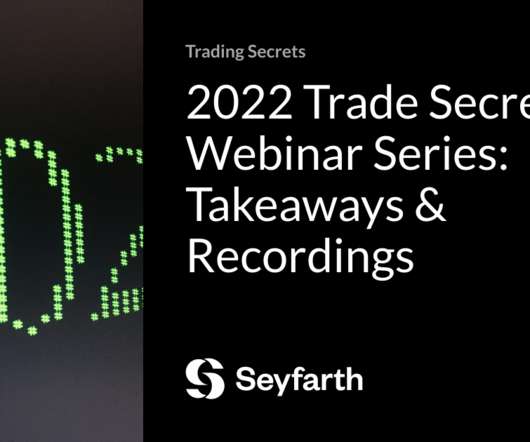2021 Trade Secrets Webinar Series: Takeaways & Recordings
Trading Secrets
DECEMBER 21, 2021
There are four types of restrictive covenants: 1) non-competition; 2) non-solicitation of customers; 3) non-solicitation of employees; and 4) non-disclosure. Most often, restrictive covenants are designed to prevent a departing employee from competing with his/her former employer for clients or business.
















Let's personalize your content